Abstract
In pigeons under fixed-interval schedules of reinforcement, responding during most of the interval can be suppressed by stimulus conditions never present when a response is promptly followed by reinforcing stimuli. When the external stimuli obtaining immediately before reinforcement are presented during brief probe periods in the course of the interval, the rate of responding in the probe depends on the temporal position of the probe during the interval; the rate of responding is lower during a probe early in the interval than during one late in the interval. The present experiments show that the temporal dependency still holds (1) in birds with no experience under unmodified fixed-interval schedules, (2) when the time between probes is spent in complete darkness, and (3) when food presentations are omitted at the end of 50% of intervals. The results strengthen and extend the conclusion from previous studies that the time relations themselves are the primary control of rate of responding under fixed-interval schedules of reinforcement.
Full text
PDF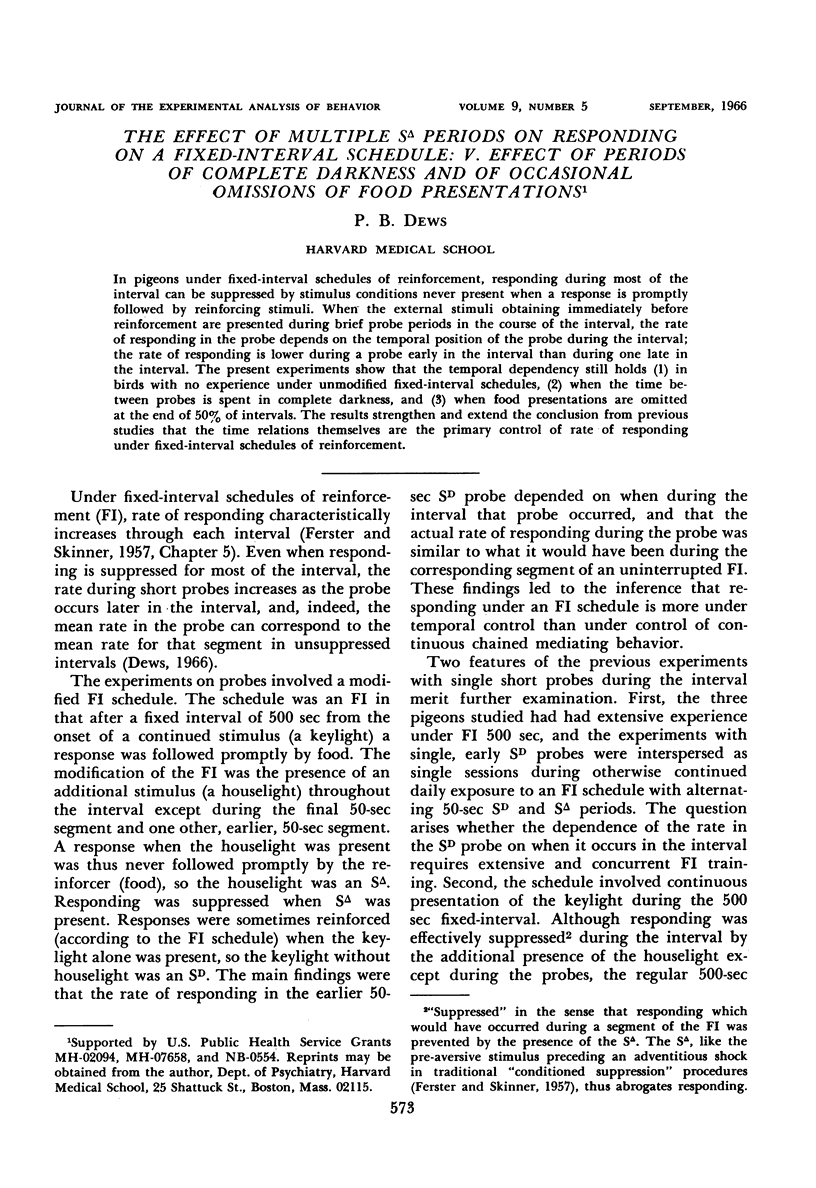
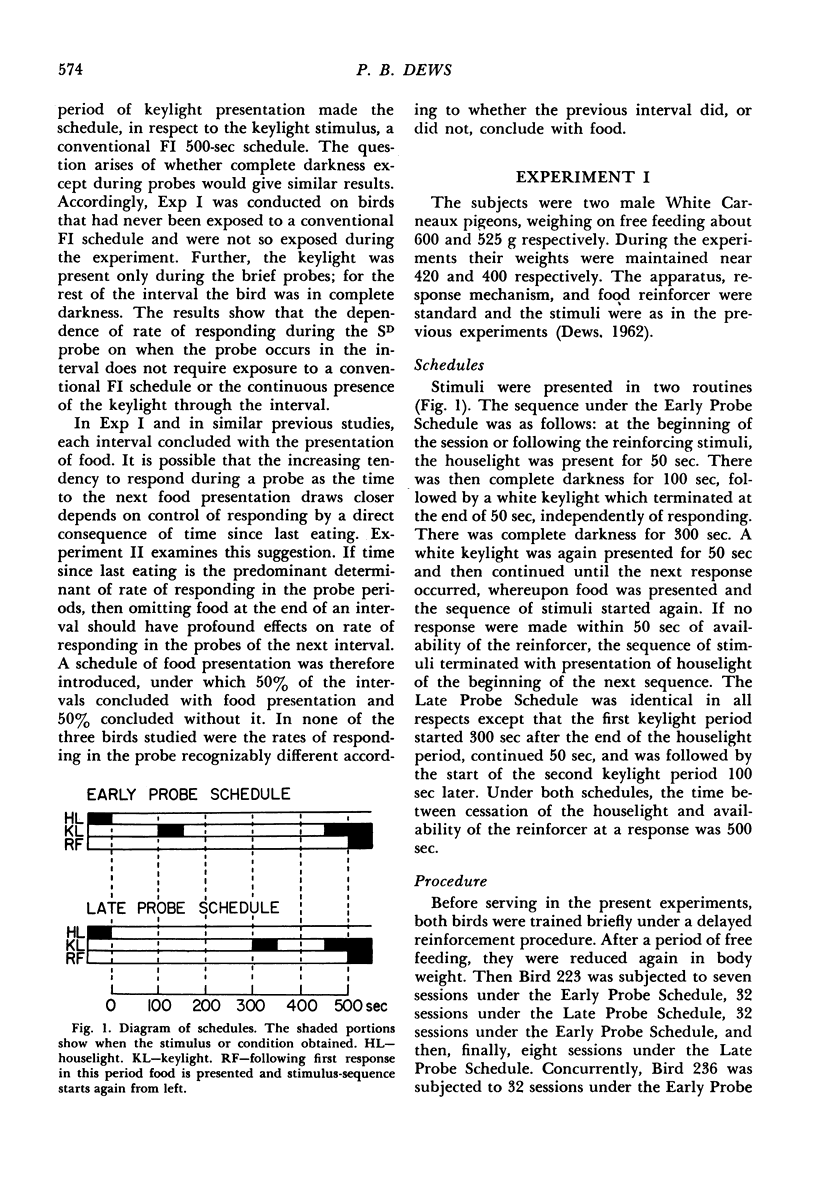
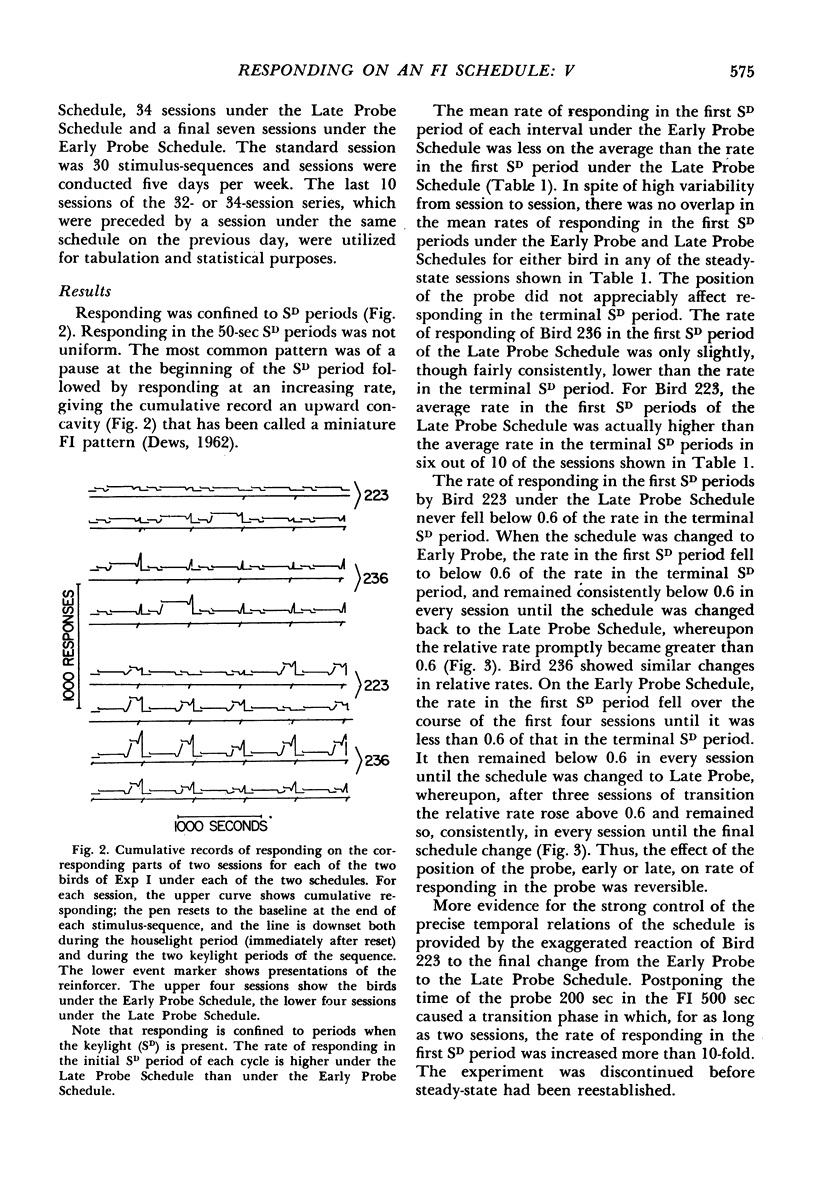
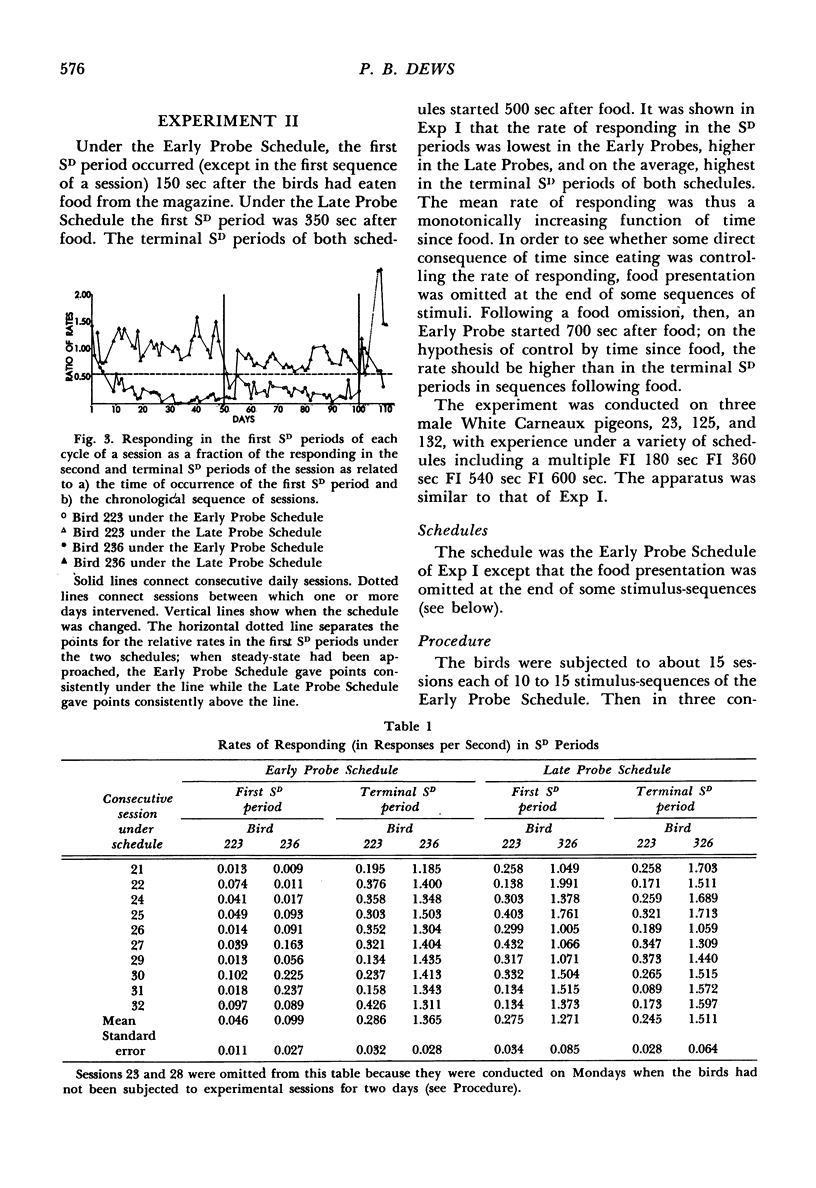
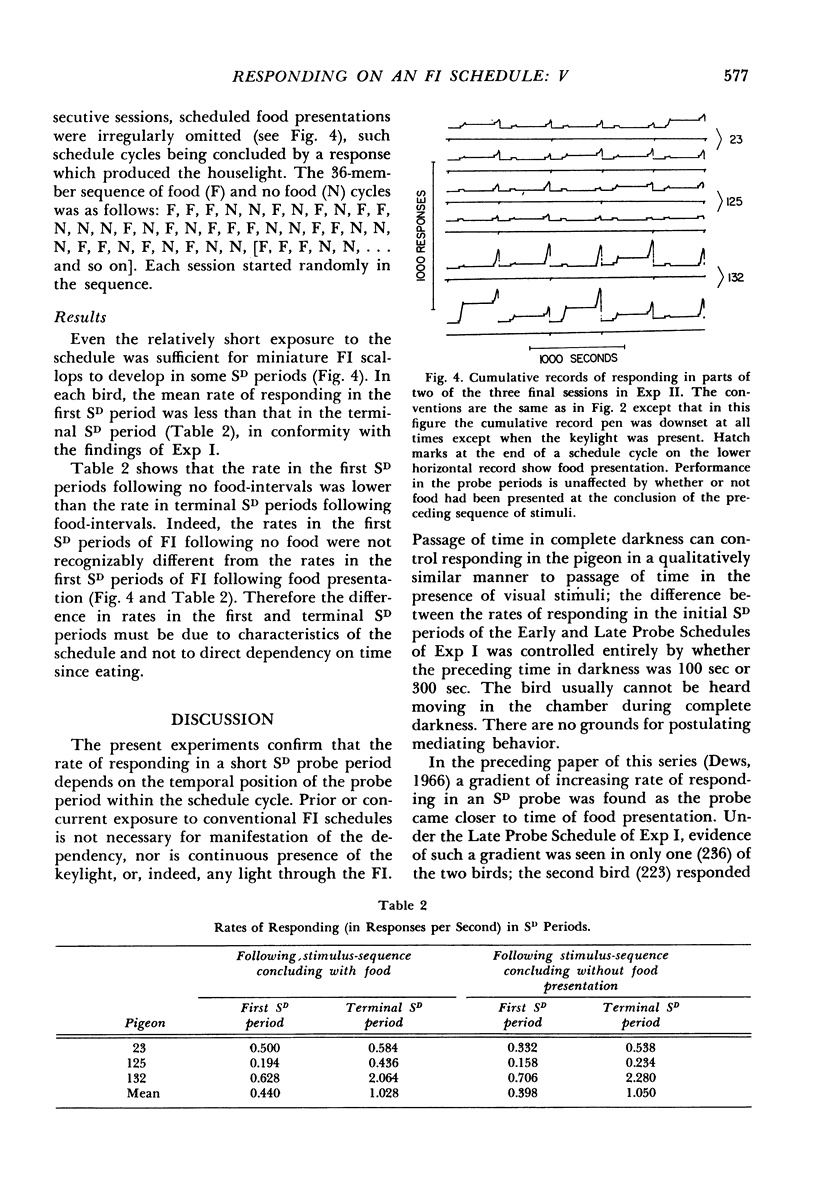
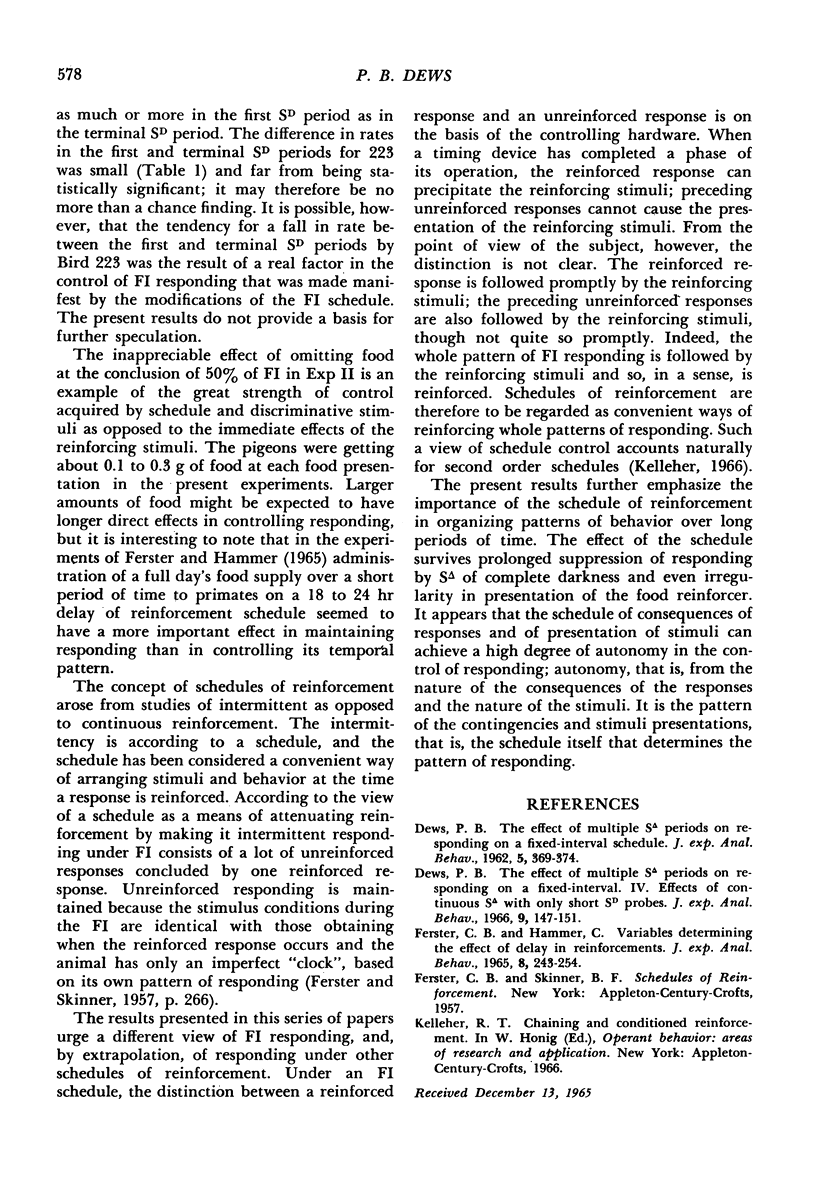
Selected References
These references are in PubMed. This may not be the complete list of references from this article.
- DEWS P. B. The effect of multiple S delta periods on responding on a fixed-interval schedule. J Exp Anal Behav. 1962 Jul;5:369–374. doi: 10.1901/jeab.1962.5-369. [DOI] [PMC free article] [PubMed] [Google Scholar]
- Dews P. B. The effect of multiple S periods on responding on a fixed-interval schedule: IV. Effect of continuous S with only short S probes. J Exp Anal Behav. 1966 Mar;9(2):147–151. doi: 10.1901/jeab.1966.9-147. [DOI] [PMC free article] [PubMed] [Google Scholar]
- FERSTER C. B., HAMMER C. VARIABLES DETERMINING THE EFFECTS OF DELAY IN REINFORCEMENT. J Exp Anal Behav. 1965 Jul;8:243–254. doi: 10.1901/jeab.1965.8-243. [DOI] [PMC free article] [PubMed] [Google Scholar]


